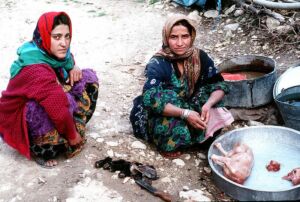News
Danish project could save lives in developing countries
This article is more than 10 years old.
Danish entrepreneur revolutionises the field of solar power in an effort to save lives

Pranov hopes that Heliac can be used to replace open fires used for cooking in developing countries (photo: Paul R Caron)
Danish engineer Henrik Pranov has developed a solar panel using plastic film that aims to revolutionise the field of concentrated solar power and save lives across the world.
Heliac uses micro and nano-structured foils, made using packaging process technology, to create a thin plastic film that has several advantages, such as lowering operating costs, improving cleaning, and lighter construction.
In addition to this, Pranov hopes the solution may be of use to developing countries, in which billions of people live without access to proper facilities.
“Our ambition is to create an energy ambition for the 3 billion people worldwide without access to electricity,” said Pranov.
The thin layers of film can be used in many ways: from brewing coffee to cooking pancakes to making chocolate fondues.
Greater assistance for developing countries
The ambition, however, goes much further than simply making a chocolate fondue. The aim for Heliac is to replace all open fires used for cooking in developing countries.
“The issue is hugely overlooked. A typical family [in a developing country] spends between one half and one third of their income on finding materials to burn,” said Pranov to Ing.
In addition to using their scarce resources on coal and firewood, open fires represent a serious safety hazard.
According to WHO, approximately 11,000 people die per day from diseases such as pneumonia, lung cancer and heart disease as a result of smoke inhalation.
In addition to this, open fires contribute to smog, deforestation and increased greenhouse gas emissions.
“The problem is that they have no good alternatives. Maybe they can use a cardboard box with aluminum, but it is not very practical and cannot cook rice or sterilise water. Now, we have boiled it down to a simple solution,” explains Pranov.
The film weighs almost nothing and can easily be compacted, making it a useful tool for many outdoor events.
Trials at Roskilde
Last week, Pranov took advantage of the good Danish summer weather to test his Heliac solution at the Roskilde Festival.
“The Roskilde Festival is the closest scenario we can get in Denmark to a camp in a developing country, where solar heat will be of great use,” he said.
The price for developing countries will be between 50 and 100 kroner for two sqm of foil.
You can read more about Heliac at its website (heliac.dk), where you can support the project through crowdfunding. All proceeds will go towards providing Heliac film to developing communities in Africa and South America.










































